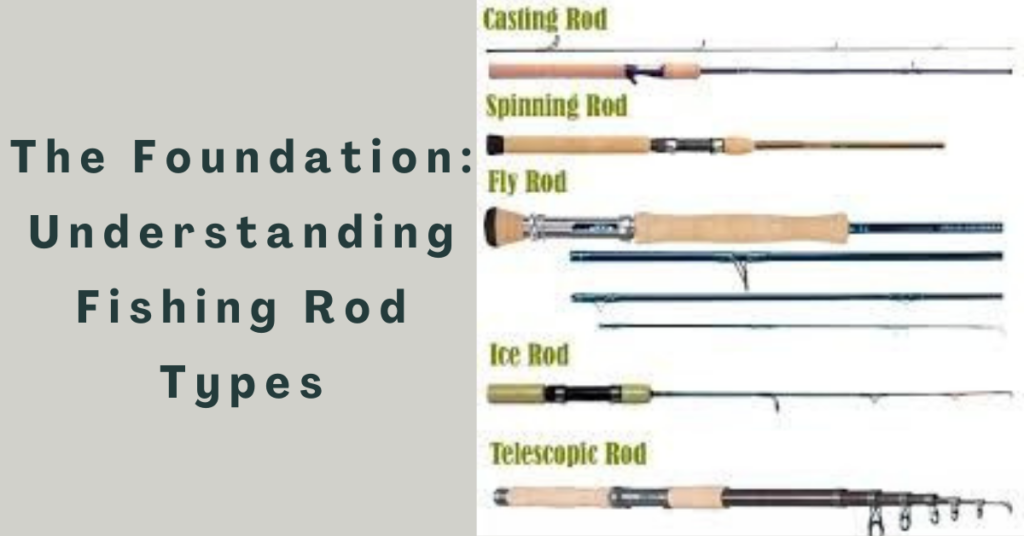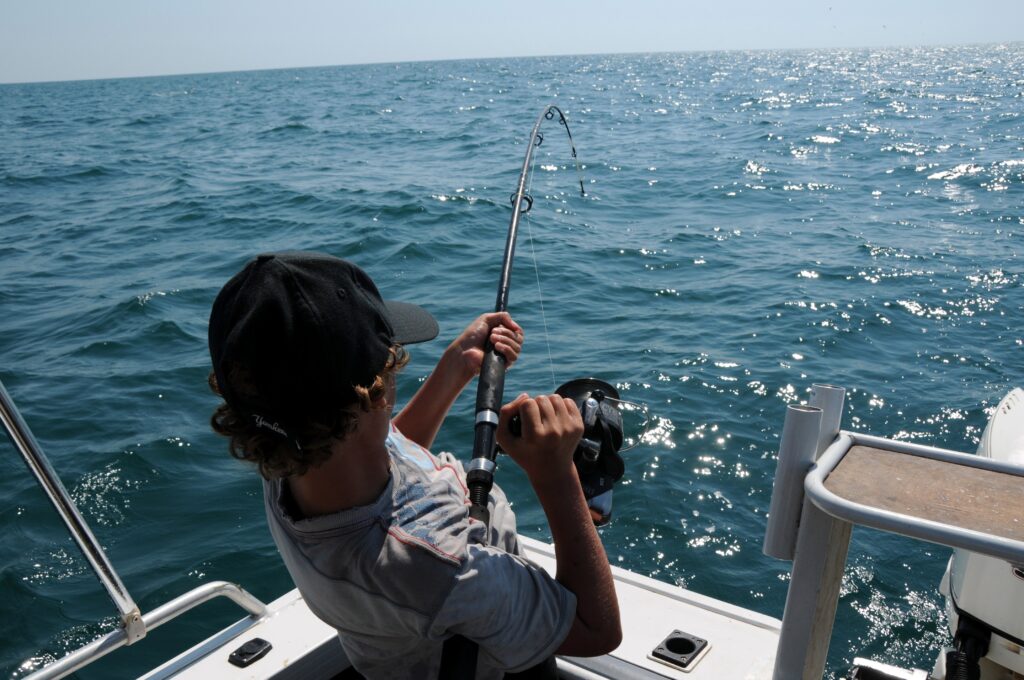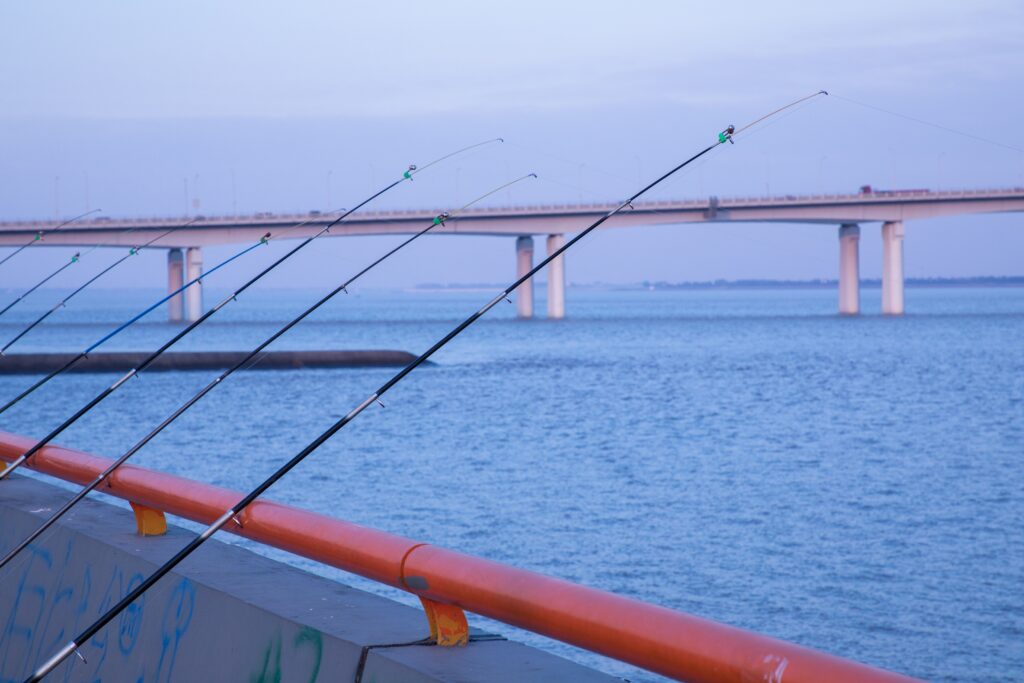The perfect fishing rod can make all the difference when it comes to fishing. In this comprehensive tutorial, learn the main elements that affect which type of fishing rod is best. There is a strong bond between the angler and their rod in the sport of fishing. It is an extension of the fisherman’s intention rather than merely a tool. You’ve come to the perfect site if you’ve ever wondered, In this comprehensive guide, we’ll go deeply into the subtleties of fishing rods to help you understand the factors that might make or break your fishing experience.
The Foundation: Understanding Fishing Rod Types

Let’s first look at the many kinds of fishing rods that are available before getting into the specifics
Spinner Rods
Spinning rods are adaptable and good for newcomers. They are made to make casting small lures and baits simple.
Rods for bait casting
For their accuracy, these rods are prized by seasoned fishers. When using heavier lures, bait casting rods offer superior control.
Rods for fly fishing
Fly fishing rods are made for a particular casting style. They enable you to deftly toss light flies onto the water’s surface.
Rods for ice fishing
For the daring individuals that fish in frozen lakes, there are specialized equipment called ice fishing poles. They are small and made to be used in extremely low temperatures.
After outlining the main categories, let’s move on to the important aspects to take into account while selecting the best fishing rod.
What to Take Into Account When Choosing the Best Fishing Rod
More than simply selecting a kind is involved in selecting the best fishing rod. The following are the things to consider
1. Fishing Spots
Be sure to plan your fishing location. Do you reside in fresh or salt water? Different rod materials and lengths are required for various settings.
2. Target Species
The strength and motion of your rod will depend on the species you plan to capture. When fishing for huge animals, hefty rods are required whereas light rods are best for little fish.
3. Rod Substance
Graphite, fiberglass, and composite are examples of common materials. Each has distinct qualities that have an impact on the rod’s sensitivity and toughness.
4.Rod Length
Longer rods give more throwing distance, while shorter rods offer greater control. Your decision will be influenced by your fishing style and location.
The Science of Picking a Rod

Now that you are familiar with the essential criteria, let’s look at how to choose the ideal fishing rod.
1. Evaluate your level of skill
Choose a forgiving rod type, like as a spinning rod, if you’re a beginner. Anglers with experience might investigate the subtleties of bait casting or fly fishing.
2. Examine the Rod
When possible, hold the rod in your hands. Check its grip, balance, and weight to make sure they are in line with your tastes.
3. Ask Professional Advice
Consult with local fishing guides or specialists without hesitation. They may offer priceless advice based on the particular fishing grounds you are using.
Conclusion
The ideal fishing rod is your dependable ally and quiet buddy as you pursue aquatic experiences. You may discover the fishing rod that speaks to your angler’s soul by comprehending the subtleties of different fishing rod types, taking into account crucial considerations, and embracing the art of selecting. You’ll be able to make an informed decision the next time you wonder, “What kind of rod is best for fishing?”
Frequently Asked Questions
1. Can I fish in saltwater with a bait casting rod?
Yes, bait casting rods may be used for saltwater fishing, but it’s important to pick a type made especially for the corrosive conditions of saltwater.
2. What benefit does a longer fishing pole provide?
With a longer rod, you can cast farther and have more control over your bait or lure. It’s perfect for circumstances in which you have to cover more water.
3. How do I choose the proper rod strength for the fish I wish to catch?
Take into account the weight and size of the fish you want to catch. Smaller fish can be caught with light power rods, whereas larger fish require heavier power rods.
4. What kind of rod material has the best sensitivity?
For fishermen who depend on feeling even the smallest nibble, graphite rods are a great choice because of their extraordinary sensitivity.
5. Telescopic fishing rods—are they a decent option for novices?
Telescopic rods are a practical option for novices since they are small and portable
6. Can I fish in saltwater with a freshwater rod and vice versa?
It is not advised. Freshwater rods are not durable enough for saltwater environments, and saltwater may quickly erode freshwater rods.
Summary: Choosing the perfect fishing rod

The style of fishing, target species, rod material, and length are all important considerations when picking the ideal fishing rod. For the best choice, evaluate your degree of expertise, physically test the rod, and seek professional guidance. You’ll improve your fishing experience and improve your chances of bringing home that prized catch if you have the correct rod in your possession.


